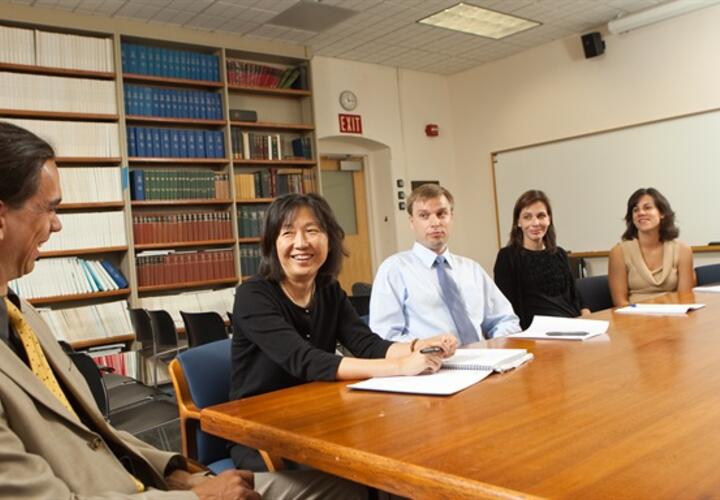
H-1B temporary worker status is designated for individuals coming temporarily to the U.S. to work in a specialty occupation. A specialty occupation is defined as one that requires “theoretical and practical application of a body of highly specialized knowledge, and attainment of a bachelor's or higher degree, or its equivalent, as a minimum requirement.” Further, the U.S. Citizenship and Immigration Services (USCIS), the federal H-1B petition adjudication authority, adds that “the 'degree' means not just any degree, but one in a specific specialty that is directly related to the offered position.”
The H-1B is an 'employer specific' status. This means that the H-1B employee may only be paid by the specific H-1B petitioner and only according to the terms in the H-1B application. Scholars in H-1B status cannot accept funds from another employer or source other than the employer listed in the H-1B application. At Yale, H-1B status is typically used for faculty appointments.
At Yale, H-1B status is most often used for faculty and academic positions such as, Assistant Professor, Instructor and Associate Research Scientist. Occasionally, postdoctoral associates will be eligible for H-1B, but they most commonly use the J-1 status. In all cases, the Yale hiring department/unit must agree to H1B sponsorship.
Please consult with your OISS adviser to determine whether or not H-1B is the best visa for the scholar/employee and/or the presented appointment/position.
Eligibility
Regulations define the H-1B visa as a paid temporary worker status for individuals working in a specialty occupation (one that requires “theoretical and practical application of a body of highly specialized knowledge, and attainment of a bachelor's or higher degree, or its equivalent, as a minimum requirement”). H-1B sponsorship also requires that employers pay a “prevailing wage” or the actual wage, whichever is higher.
Maximum Duration
H-1B status is initially granted for a maximum period of three years and can be extended to a total of six years (regardless of the number of employers). Because the application process is lengthy and complex, requesting a full-three year H-1B (provided the intention is to retain the scholar for three years) is recommended and advantageous.
Legal Representation
The decision to use the H-1B is up to the university based on the OISS assessment and recommendation and the request for sponsorship must always be initiated by the department. All H-1B sponsorship is processed through OISS. Outside attorneys are not authorized to petition for H-1B status for any Yale employee without written consent from the OISS.

